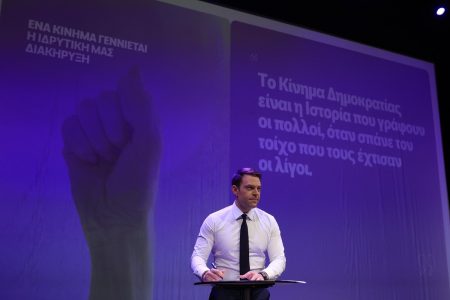Just as the Greek convoy evacuating Greek citizens, journalists, and diplomats in southeastern Ukraine, where the country’s large Greek community is concentrated, was setting out for Moldova today, the Ukrainians according to then uncorroborated reports warned that the Russian army may launch a strike at the convoy, in a provocation designed to lay the blame on the Ukrainian side.
The Greek media were informed by sources and reported that the convoy would begin at 11:00 today, a leak presumably designed to hold the Russians accountable for an attack on the Greeks.
It is unclear precisely why the evacuation organised by Greek diplomatic authorities was delayed until after the Russians began pounding the city.
On 28 February, Greek foreign ministry spokesman Alexandros Papaioannou said that, “There is a plan for the evacuation of Mariupol, but conditions do not permit its completion. We are waiting for a ‘window [of opportunity]’ in order to carry it out and take them out securely.”
On 18 February, at a meeting between Foreign Minister Nikos Dendias and his Russian counterpart, Sergey Lavrov, the Greek side had reportedly received assurances regarding the security of the large Greek community of Mariupol, assurances that remained a dead letter as Russian forces laid siege to the city.
The convoy indeed left Mariupol at 11:00 and reached the city of Zaporizhzhia at 18:30, after an excruciating, over seven-hour Odyssey, according to the accounts of evacuating Greek journalists compiled by Action24 television.
According to those accounts, the convoy – initially with 82 passengers including Greek journalists and 22 vehicles, to which more were added en route – passed through bombed villages, was forced to change course when it found destroyed bridges, at times came under fire from Russian troops that also slashed the tyres of some vehicles, and was confronted at some point by Russian tanks that changed course and turned their barrels threateningly toward the Greek convoy.
Expectation Russian provocation against Greeks would be pinned on Ukraine
Veteran Greek journalist Kostas Onisenko, Ta Nea’s correspondent in Kyiv, earlier in the day had reported information disseminated by Ukraine’s Telegram Channel [Throughout the pandemic, thousands of Ukrainians turned to the official Covid-19 Telegram channel for the latest pandemic news, but since the Russian invasion such channels have been providing “socio-political news”, by popular demand as they say], which is said to be privy to information from Ukrainian intelligence agencies.
“The objective is to accuse Azov [the region surrounding Mariupol] and to curb the massive wave of support for Ukraine,” Onisenko reported.
The Ukrainians’ prior warnings
“Russian provocation an urgent danger for Greek citizens [in the region].”
“A short while ago, various large Ukrainian telegram channels presented the following message. It may derive from a briefing from Ukrainian security authorities. The source is not clarified, yet it constitutes a very serious danger. The message is as follows:
“Warning!”
“Russian invaders are planning a provocation against Greek citizens [in Ukraine]!”
“Russian conquerors, under the false flag of the Azov Brigade [which the Russian label as neo-Nazi but has long been under the command of Ukrainian forces and includes many ethnic Greeks of the region], are preparing an attack on the evacuation convoy set up by the Greek Consulate General in Mariupol!”
“In this way, the Russian side will attempt to defame Ukraine internationally and reduce the level of support for our country!”
“We remind you that as of 2015, the Azov Brigade (formerly comprised of volunteers) is part of the Ukrainian Army, does not operate autonomously, and acts only in the framework of Ukrainian Army operations. Many diaspora Greeks are serving in its ranks.”


